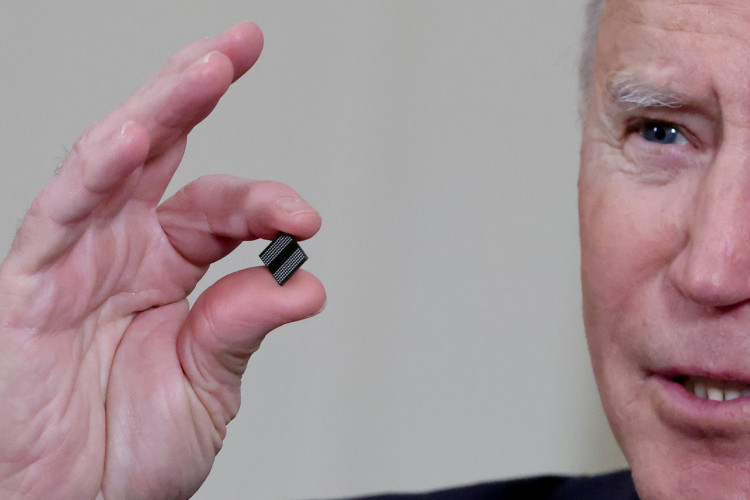China's leading chip trade group said on Thursday it was "disappointed" by recent U.S. export limits and warned that they might put more strain on global supply chains.
"Not only will such unilateral measure harm the further global supply chain of the semiconductor industry, more importantly, it will create an atmosphere of uncertainty, which will negatively affect the trust, goodwill, and spirit of cooperation that the players of the global semiconductor industry have carefully cultivated over the past decades," the China Semiconductor Industry Association (CSIA) said in a statement.
A comprehensive set of rules designed to stifle developments in China's semiconductor industry were approved last week by the U.S. Commerce Department.
The rules could prevent Chinese chip fabs from purchasing essential manufacturing equipment, deny access to advanced AI chips to research labs and commercial data centers, and require US citizens working for advanced Chinese chip companies to leave their positions if they were to be broadly enforced.
The CSIA continued by expressing its hope that the US government will change its approach and "return to the well-established framework of the World Semiconductor Council (WSC) and the Government and Authority Meeting on Semiconductor (GAMS).".
Two international trade forums where member nations discuss development and strategy for the chip industry are the WSC and GAMS, which were founded in 1996 and 1999, respectively.
Semiconductors are required to power practically everything with an electronic component, from cars to the weapons that the U.S. is delivering to Ukraine. However, because to supply chain disruptions worsened by the global epidemic, they are in low supply in the United States and around the world.
The Biden administration is frantic to address the local chip shortfall while also countering China's emerging influence.
According to the White House, the United States generates just approximately 10% to 12% of the world's semiconductor supply and none of the sophisticated chips, while East Asia accounts for 75% of worldwide production.
The White House intends to change that.
"We invented this industry in the United States. I mean, there's a reason it's called Silicon Valley," Ronnie Chatterji Chatterji, Chief Economist of the Department of Commerce, said.
Bipartisan interest in funding chip production in America has also been spurred by worries about China's economic, technological, and military ambitions.
In response to the US restrictions, share prices of Chinese IT behemoths and chip manufacturers with operations there plummeted. The U.S. government has recently rapidly given several foreign chipmakers extensions in order to prevent supply issues.






